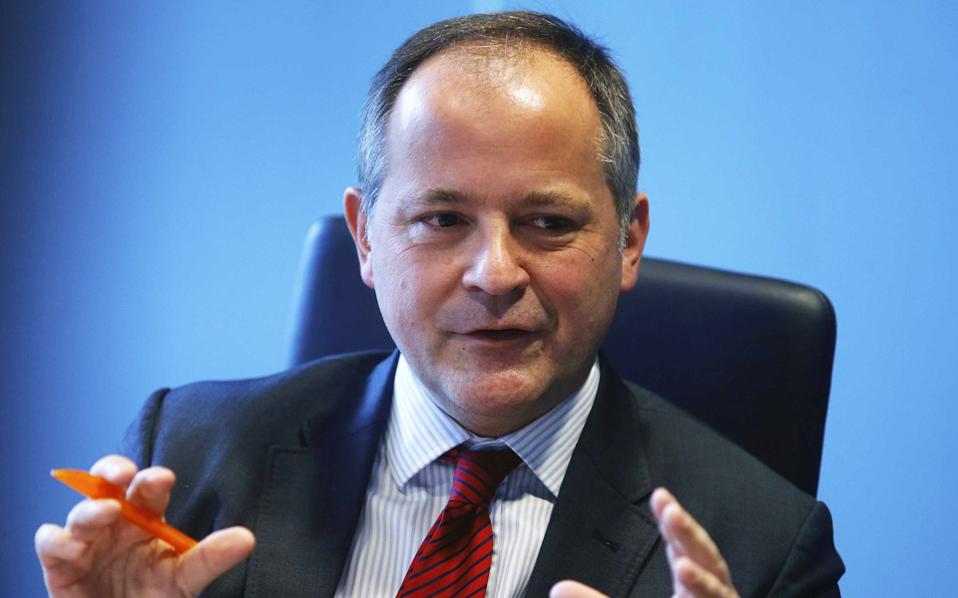Coeure commends Greece on euro commitment, adds more reforms needed

Greeks remain committed to the euro despite the sacrifices that have been demanded of them, European Central Bank executive board member Benoit Coeure told Le Parisien.
“Even with the sacrifices that have been demanded of the Greek people, they have never expressed a wish to leave the euro,” he told Severine Cazes and Boris Cassel in an interview published on Tuesday.
“I don’t think that Greece should not have been included in the euro,” he said responding to a question about whether the country would have been better off outside the single currency.
Greece’s problems, Coeure said, are not related to its euro membership, but to “administrative shortcomings, very weak social protection, problematic tax collection and a highly specialized economy.”
“The euro exposes a country’s strengths and weaknesses,” the French economist added. “Greece needs to overhaul its administrative and political structures to be able to prosper in the euro. The Greeks are still facing this predicament, but they have to be commended for the major reforms that they have undertaken.”
Asked to assess the Maastricht Treaty, the foundation of the European Union and later of the single currency, signed 25 years ago, the ECB executive said “the euro is clearly a success.”
The single currency, Coeure said, “has created a strong bond between European citizens. We can only influence world affairs if we are united. The single currency allows medium-sized countries like France to speak as an equal to the United States or China. The euro does not constitute a loss of sovereignty, it is a lever of sovereignty.”
Coeure also appeared optimistic about the future of the single currency, despite growing skepticism in countries like Italy and France.
“Yes, of course, the euro has a future,” he said. “But the euro area has to undertake reforms. More coordination between governments, more reforms at national level, more solidarity and perhaps a kind of common euro area budget are necessary.”





